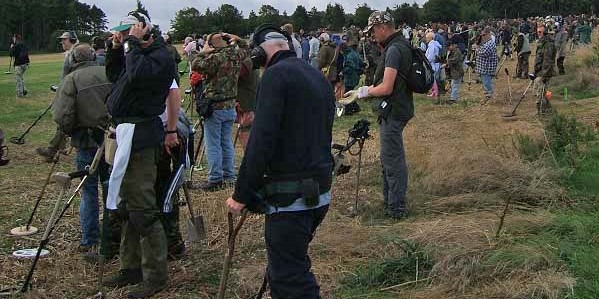
January 29, 2018, by Helen Lovatt
Harnessing Hobbyists in Classics Research
Gary Fisher Reflects on the Importance of Regional Meetings of the Classical Association
I recently had the pleasure of attending a meeting of the Hull & District branch of the Classical Association as a visiting lecturer. The audience comprised the usual sort of individuals that one expects to find at a regional CA meeting: mostly hobbyists and retirees, the majority of whom had no formal education in the Classics. The group was not about to let a lack of formal training stop their interacting with Classics however, and their enthusiasm for the subject made the lecture and subsequent discussion one of the most profitable and interesting experiences of my career to date. In addition to the wonderful welcome I received, the group were able to point to sources and suggest avenues of examination that, in my narrow focus on my specific subject area, I had not considered. By speaking to a non-specialist audience I was able to stimulate and reap the benefits of a discussion that drew on a far broader range of classical sources than one is often able to experience at specialist academic conferences.
Learning from Metal Detectorists
Professional classicists, for all our talk of not wanting to act as ‘gatekeepers’ of the classical tradition and instead promote broader engagement with the ancient world, may at times appear to be uninterested in such groups of amateur enthusiasts. I recall once hearing an early career researcher ask ‘why on earth would [she] want to speak to a bunch of retired Latin teachers?’ when discussing the idea of visiting a CA branch as a speaker. A similar attitude was once prevalent in the relationship between professional archaeologists and their own amateur counterparts, metal detectorists. The animosity between these two groups is well-documented, with professional archaeologists accusing metal detectorists of destroying archaeological information by decontextualizing and not properly recording their artefactual finds. This divide has been much ameliorated since the foundation of the Portable Antiquities Scheme (PAS) in 1997. The PAS is a largely volunteer-based organisation that seeks to bridge this gap between professionals and amateurs to the benefit of British archaeology at large. By cultivating close relationships with metal detecting societies, the PAS has worked to ensure that the work of hobbyist archaeologists has enhanced the work of archaeological professionals, rather than detracted from it. The organisation sends representatives to metal detecting societies across the country to ensure all detectorists are aware of the geographic information they need to record when unearthing an artefact. Finders are then encouraged to submit their finds to their local PAS ‘Finds Liason Officer’ to be identified, photographed, and recorded on a database by a team of PAS volunteers. In its twenty years of existence the PAS has generated a database of 1,314,476 objects at the current time of writing. This database is publicly accessible and has provided a valuable resource for archaeologists, amateur and professional alike, to identify broad trends in artefact distributions. The PAS allows metal detectorists to continue in their hobby and generate collections of found artefacts, and even enjoy the service of having a professional archaeologist identify their finds. It simultaneously allows professional archaeologists, who despite their skill and training can only cover so much ground, to use the information generated by detectorists, rather than their finds being lost to a private collection. Perhaps more importantly though, by placing archaeologists in direct contact with detectorists, it has broken the silence that existed between these two groups and encouraged dialogue about approaches to their chosen subject material, to the benefit of both groups. The Portable Antiquities Scheme has so successfully embedded itself in the culture of metal detecting that is has been referenced in BBC Four’s BAFTA award winning series Detectorists, currently enjoying its third and final season.
Harnessing Hobbyists in Classics
As the University of Nottingham’s department of Classics has now merged with the department of Archaeology, it seems a good time to consider how such an innovation might be applied to that of Classics. This is no simple feat. Where the finds of detectorists are easy to quantify according to fields such as location, item type, material, etcetera, it is somewhat more difficult to catalogue to thoughts and theories of classics enthusiasts. Yet if my visit to Hull taught me anything it is of the wealth of this untapped resource upon which professional classicists sit. The field of archaeology is blessed with a community of people prepared to comb the fields of England digging up Tudor spoons, eighteenth-century shoe buckles, and, occasionally, a bronze nummi from the House of Constantine. Classicists are similarly fortunate enough to have access to a huge pool of people who have read more widely of the ancient historians, handled a greater variety Roman coins, and visited more ancient sites, than many professional classicists, often constrained by the necessary narrow focus of professional research, can hope to cover,. The benefits that a professional, specialised classicist might reap from speaking to such a widely-read group is manifest, and I am sure many an early career researcher would find themselves being directed towards a useful source or line of enquiry they would not otherwise consider. Such engagement is also of obvious benefit to these communities of enthusiasts. In places such as Hull, following University budget cuts and department closures, interest in the classical tradition is being kept alive by these groups of keen amateurs. By speaking to branches of the Classical Association, classicists can not only enjoy personal benefits, but also help support the work of these organisations that encourage classical interest in areas bereft of resident professionals. Just as the Portable Antiquities Scheme has helped generate a mutually beneficial relationship between archaeologists and detectorists, the Classical Association provides classicists with an opportunity to strike up a similarly mutually-beneficial relationship with the wealth of enthusiasts that we have at our disposal.
No comments yet, fill out a comment to be the first

Leave a Reply